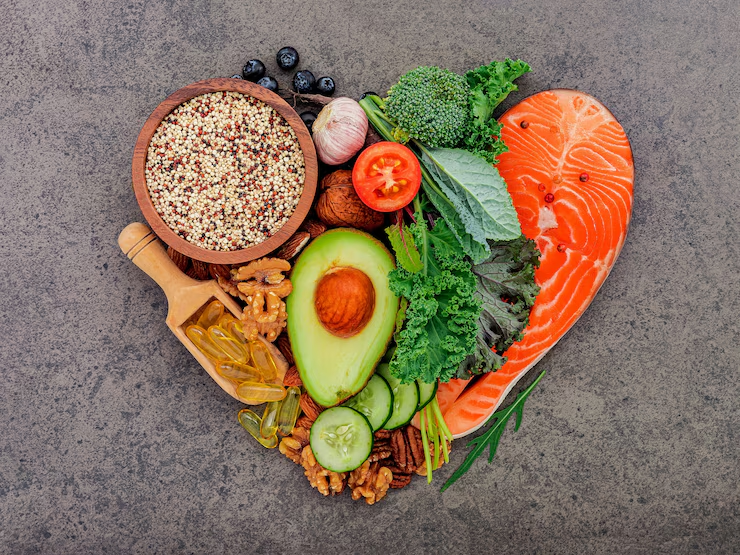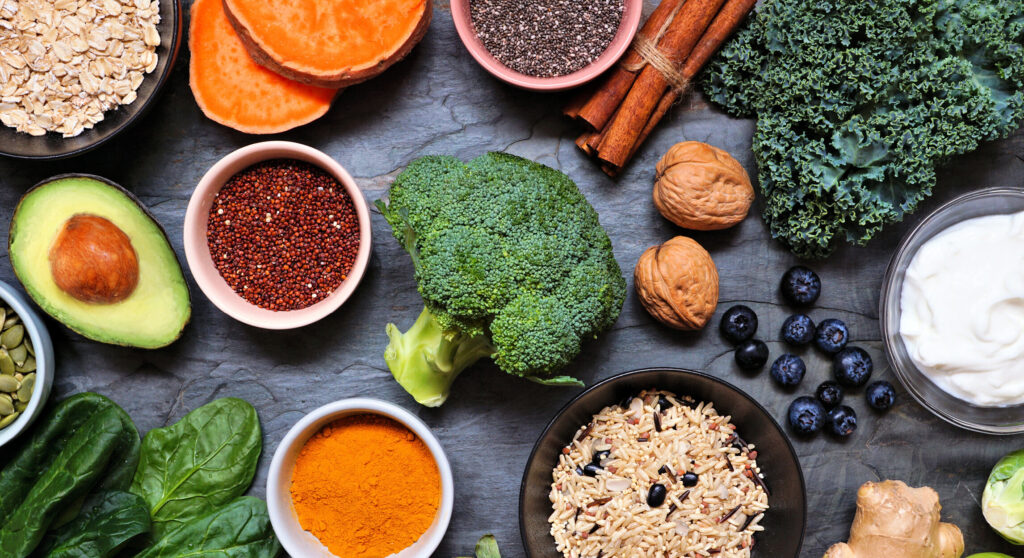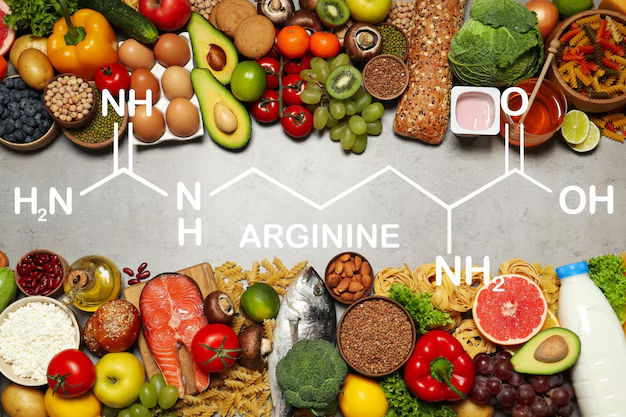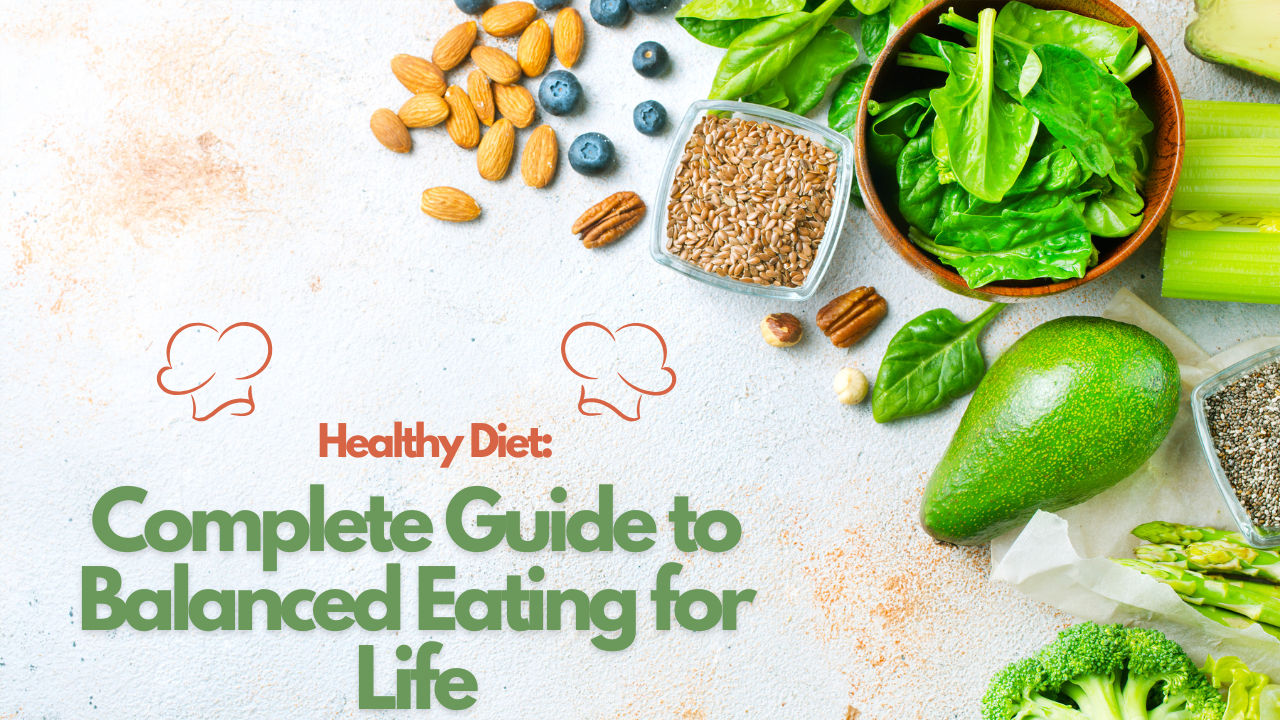In today’s world, people are becoming increasingly aware of how lifestyle choices impact overall health, and the phrase “healthy diet” has become central to personal well-being. A healthy diet goes beyond just weight control; it is a comprehensive approach to living a longer, stronger, and more vibrant life. By focusing on a balance of nutritious foods, individuals can nourish their bodies and maintain optimal health over time.
A healthy diet plays a crucial role in reducing the risk of chronic diseases like heart disease, diabetes, and obesity. By providing the body with essential nutrients, it helps to strengthen the immune system and keeps various bodily systems functioning well. Additionally, it supports mental health, improving mood and cognitive function while reducing the likelihood of mental health conditions such as anxiety and depression.
Beyond its role in disease prevention, a healthy diet also improves overall quality of life. It boosts energy levels, enhances digestion, and fosters a sense of well-being. Embracing a healthy diet leads to better physical health, mental clarity, and the vitality needed to enjoy life to the fullest. Ultimately, it helps individuals live with more energy, focus, and happiness every day.
Understanding the Basics of a Healthy Diet

What is a Healthy Diet ?
A healthy diet provides the body with essential nutrition, including fluids, macronutrients (carbohydrates, proteins, fats), and micronutrients (vitamins and minerals). These nutrients are crucial for maintaining proper bodily functions and ensuring the body runs efficiently. A healthy diet helps support a strong immune system and enhances overall well-being.
In addition to nourishing the body, a healthy diet helps maintain energy levels and supports disease prevention. By consuming a variety of nutrient-rich foods, individuals can reduce the risk of chronic illnesses such as heart disease and diabetes. A healthy diet not only fuels the body but also promotes a balanced lifestyle that contributes to long-term health and vitality.
A healthy diet typically includes:
Fruits and vegetables (varied and abundant)
Whole grains (like brown rice, quinoa, oats)
Lean proteins (fish, legumes, tofu, poultry)
Healthy fats (nuts, seeds, olive oil)
Limited sugars and processed foods
Nutrition Guidelines from Experts
Health organizations, such as the World Health Organization (WHO) and the Dietary Guidelines for Americans, provide clear dietary recommendations to help individuals achieve a healthy diet. These guidelines emphasize the importance of balanced nutrition, including a variety of fruits, vegetables, whole grains, lean proteins, and healthy fats.
Following these recommendations helps support overall health and well-being. A healthy diet promotes disease prevention, maintains energy levels, and supports proper bodily functions. By incorporating these dietary guidelines, individuals can make informed choices that enhance their long-term health, reduce the risk of chronic diseases, and improve their quality of life.
At least 5 servings of fruits and vegetables daily
Less than 10% of total energy intake from added sugars
Less than 30% of total energy intake from fats (with less than 10% from saturated fats)
At least 25 grams of fiber per day for adults
At least 1.5 liters of water daily
Macronutrients: The Building Blocks of Nutrition

Carbohydrates
Carbohydrates are the body’s primary source of energy, fueling daily activities and bodily functions. However, not all carbs are the same. Some carbs, like those found in whole grains and fruits, provide essential nutrients and fiber, contributing to a healthy diet.
On the other hand, refined carbs, found in processed foods and sugary snacks, can lead to energy crashes and contribute to weight gain. Choosing nutrient-dense carbs is key to maintaining energy levels and supporting overall health as part of a balanced, healthy diet.
Healthy carbs: whole grains, legumes, fruits, and vegetables
Unhealthy carbs: refined grains, sugary snacks, sodas
Whole carbohydrates come with fiber, which helps with digestion and regulates blood sugar.
Proteins
Protein is essential for muscle repair, immune function, and hormone production. It plays a crucial role in maintaining and rebuilding tissues, helping the body recover after physical activity.
Including adequate protein in your healthy diet is important for overall well-being. It supports immune health, aids in hormone balance, and ensures proper body function. By including lean protein sources such as poultry, fish, beans, and nuts, you can enhance your nutrition and promote muscle strength and recovery, contributing to a healthier lifestyle.
Animal sources: chicken, turkey, fish, eggs, dairy
Plant-based sources: lentils, beans, tofu, nuts, quinoa
It’s essential to include a variety of protein sources, especially for vegetarians and vegans.
Fats
Fats have often been misunderstood, but they are crucial for overall health. Healthy fats play an essential role in supporting brain function and maintaining healthy cells. They help absorb important vitamins and provide long-lasting energy.
Including healthy fats into a balanced, healthy diet is vital. Sources like avocados, nuts, seeds, and olive oil provide the necessary nutrients for proper body function. These fats support cognitive health, protect organs, and contribute to a well-rounded, nutritious diet that benefits overall well-being.
Healthy fats: avocado, olive oil, fatty fish (like salmon), flaxseeds
Unhealthy fats: trans fats, excess saturated fats (found in fried and processed foods)
Micronutrients: Small Yet Mighty

Micronutrients, though needed in smaller amounts, are essential for maintaining good health. These include vitamins and minerals, which support various bodily functions, from immune defense to energy production. A deficiency in micronutrients can lead to a range of health issues.
Including a variety of nutrient-dense foods in a healthy diet ensures adequate intake of these important micronutrients. Fruits, vegetables, whole grains, and lean proteins are excellent sources. A balanced diet rich in micronutrients helps maintain optimal health, supports growth and development, and prevents chronic diseases, making it vital for overall well-being.
Vitamins
Vitamin A: Essential for maintaining healthy vision and supporting a strong immune system. It helps the eyes function properly and plays a role in skin health and cell growth. Sources include carrots, spinach, and other colorful vegetables.
Vitamin C: Known for its ability to boost the immune system, Vitamin C helps protect cells and promotes wound healing. It is also important for collagen production, skin health, and antioxidant protection. Found in foods like oranges, strawberries, and bell peppers.
Vitamin D: Crucial for maintaining strong bones by aiding calcium absorption. It also supports immune function and overall health. Vitamin D can be obtained through sunlight exposure, fortified milk, and certain types of fish.
Vitamin B12: Vital for nerve function and the production of red blood cells. It supports brain health and energy levels. This vitamin is primarily found in animal-based foods like meat, dairy, and fortified cereals, making it essential for those with specific dietary needs.
Minerals
Calcium: An essential mineral for the development and maintenance of strong bones and teeth. It plays a key role in bone density, muscle function, and nerve signaling. Calcium can be found in dairy products such as milk, cheese, and yogurt, as well as in leafy green vegetables like kale and broccoli.
Iron: Vital for the transport of oxygen throughout the body, as it is a key component of hemoglobin in red blood cells. Iron helps prevent fatigue and supports overall energy levels. It is found in red meat, poultry, lentils, spinach, and other iron-rich plant sources.
Zinc: Important for maintaining a healthy immune system, zinc aids in wound healing, cell division, and DNA synthesis. It also supports healthy skin, hair, and nails. Zinc can be found in foods like pumpkin seeds, nuts, and legumes.
Deficiencies can lead to various health issues, from fatigue to compromised immunity.
The Importance of Fiber and Hydration
Fiber
Fiber is a crucial component of a healthy diet, as it supports healthy digestion and prevents constipation. It helps move food through the digestive tract, promoting regular bowel movements and improving overall gut health.
In addition to aiding digestion, fiber plays an important role in reducing cholesterol levels, which contributes to better heart health. Consuming a diet rich in fiber from fruits, vegetables, whole grains, and legumes can help regulate blood sugar levels and maintain a healthy weight. Including enough fiber in your healthy diet is essential for optimal digestive and cardiovascular function.

Soluble fiber: found in oats, apples, beans
Insoluble fiber: found in whole grains, vegetables, wheat bran
Daily fiber recommendations:
Women: 25g/day
Men: 38g/day
Water
Water makes up about 60% of the human body and is essential for every cell’s proper function. It plays a key role in regulating body temperature, transporting nutrients, and removing waste. Without adequate hydration, the body cannot perform its daily functions efficiently.
In a healthy diet, water is a vital part of maintaining overall well-being. Drinking enough water ensures the body stays hydrated, supports digestion, and helps maintain energy levels. Including sufficient water intake in your daily routine is crucial for staying healthy, supporting metabolism, and promoting optimal physical and mental performance.
Benefits include:
Aids in digestion and nutrient absorption
Regulates body temperature
Supports metabolism
Prevents dehydration and fatigue
Aim for at least 8–10 cups (2–2.5 liters) of water a day, more if physically active or in hot climates.
Balanced Eating Patterns
Rather than concentrating on individual nutrients, it’s more effective to focus on overall eating patterns for a healthy diet. Adopting a balanced approach to nutrition helps ensure that the body receives a variety of essential nutrients from different food sources.
A sustainable healthy diet emphasizes the importance of variety, moderation, and nutrient-dense foods, such as fruits, vegetables, whole grains, and lean proteins. By creating healthy eating habits, individuals can maintain long-term well-being and prevent chronic diseases, instead of focusing solely on individual nutrients. This balanced approach supports overall health and helps sustain energy and vitality.
Popular Healthy Eating Patterns:
Mediterranean Diet
Rich in fruits, vegetables, legumes, olive oil, whole grains, and fish
Moderate consumption of wine and dairy
Linked to heart health and reduced risk of chronic diseases
DASH Diet (Dietary Approaches to Stop Hypertension)

Focuses on reducing sodium and increasing potassium, magnesium, and calcium
Emphasizes fruits, vegetables, and low-fat dairy
Proven to lower blood pressure
Plant-Based Diets
Focus on whole plant foods
Can be vegetarian or vegan
Associated with lower risks of obesity, heart disease, and certain cancers
Dangers of Unhealthy Diets
Unhealthy dietary patterns can lead to:
Obesity
Type 2 diabetes
Heart disease
Certain cancers
Mental health disorders (like depression and anxiety)
Excessive intake of sugar, salt, trans fats, and highly processed foods is directly linked to many of these conditions.
Healthy Eating for Different Life Stages
Children and Adolescents
Require balanced nutrients for growth and brain development
Avoid sugary cereals and snacks
Encourage fruits, veggies, and whole grains
Adults
Focus on maintenance and disease prevention
Adjust calorie intake based on activity level
Monitor sodium and fat intake
Elderly
Need calcium and vitamin D for bone health
Appetite may decrease, so nutrient-dense foods are crucial
Hydration is particularly important
Practical Tips for a Healthy Diet

Plan Meals Ahead: Planning meals in advance helps reduce impulse eating by making healthier options more accessible. It also ensures a variety of foods, promoting a balanced diet and preventing repetitive meals.
Cook at Home: Cooking at home gives you complete control over the ingredients, portion sizes, and cooking methods. This allows you to make healthier choices, avoid unhealthy additives, and create meals that align with your dietary goals.
Read Labels: Always check food labels for hidden sugars, excess sodium, and trans fats. This helps you make informed decisions and avoid unhealthy ingredients that can contribute to chronic diseases.
Practice Portion Control: Use smaller plates and measure your servings to prevent overeating. Portion control helps regulate calorie intake, promotes a healthy weight, and prevents overeating, which can lead to digestive issues.
Eat Mindfully: Eating slowly and without distractions allows you to enjoy your food and recognize when you’re full. By listening to hunger cues and practicing mindful eating, you can prevent overeating and improve digestion.
Shop Smart: Stick to your grocery list and avoid shopping while hungry. This reduces the temptation to buy unhealthy snacks and ensures you focus on purchasing nutritious, whole foods for your healthy diet.
Addressing Common Myths About Diets
Myth: Carbs are bad.
Truth: Not all carbs are harmful. Complex carbohydrates, found in foods like whole grains, fruits, and vegetables, are essential for providing long-lasting energy and supporting overall health. They are an important part of a healthy diet, offering essential nutrients and fiber that support digestion and heart health.
Myth: Fat makes you fat.
Truth: Healthy fats, such as those found in avocados, nuts, and olive oil, are an important part of a balanced diet. These fats support brain health, hormone production, and cell function. The key is moderation, as consuming fats in appropriate amounts within a healthy diet promotes long-term wellness.
Myth: Skipping meals helps lose weight.
Truth: Skipping meals may seem like an easy way to cut calories, but it can actually lead to overeating later in the day. A healthy diet includes regular, balanced meals to keep metabolism stable, prevent hunger cravings, and promote sustainable weight loss without compromising energy or health.
Myth: Supplements can replace real food.
Truth: While supplements can provide certain nutrients, they cannot replace the full range of vitamins, minerals, and other health benefits that whole foods provide. A healthy diet focused on whole, nutrient-dense foods offers fiber, antioxidants, and phytochemicals that supplements simply can’t replicate.
How to Sustain a Healthy Diet
Consistency is more important than perfection.
Start small: Begin by making gradual changes to your eating habits, such as swapping sugary drinks like soda with water. These small steps can help you adjust to a healthier diet without feeling overwhelmed and create lasting, positive habits.
Find healthy foods you enjoy: The key to maintaining a healthy diet is finding nutritious foods that you genuinely enjoy eating. When you like what you’re eating, it becomes easier to stick with your healthy eating plan in the long term.
Involve your family: Making healthy eating a family activity can strengthen habits and encourage everyone to adopt better nutrition. Cooking and eating healthy meals together fosters a supportive environment for maintaining a balanced diet as a group.
Be flexible: While consistency is important, a healthy diet also allows for occasional indulgences. It’s important to have balance and enjoy treats from time to time without feeling guilty. Flexibility helps prevent feelings of restriction and encourages long-term commitment.
Stay informed: Nutritional science is constantly evolving, so it’s essential to stay updated with reliable information. Follow credible sources to learn about the latest research and ensure that your healthy diet is based on accurate and current knowledge.
Conclusion

A healthy diet is not about following strict rules or setting unrealistic expectations. It focuses on making better food choices that support both physical and emotional well-being. Instead of cutting out entire food groups, the goal is to create a balanced way of eating that fits your lifestyle and personal needs.
Eating well should make you feel more energized, improve your mood, and support long-term health. A healthy diet includes a variety of nourishing foods that provide the body with the nutrients it needs. This balanced approach can reduce the risk of chronic illnesses while helping you feel your best each day.
With thoughtful planning, commitment, and awareness, it’s possible to change your eating habits and enjoy a healthier lifestyle. A healthy diet is a simple yet powerful way to improve your overall quality of life. By focusing on balance and mindfulness, you can build habits that lead to lasting wellness and happiness.
FAQs
- What is a healthy diet ?
A healthy diet includes a variety of foods like fruits, vegetables, whole grains, lean proteins, and healthy fats. It provides the body with all the nutrients it needs to stay strong and feel good. - Why is a healthy diet important ?
A healthy diet helps your body work properly, supports a strong immune system, keeps your energy up, and lowers the risk of diseases like diabetes and heart problems. - Can I still eat my favorite foods in a healthy diet ?
Yes, you can enjoy your favorite foods in moderation. A healthy diet is about balance—not perfection—so occasional treats are fine. - How do I start eating a healthy diet ?
Start with small changes like drinking more water, adding vegetables to meals, and choosing whole grains. These steps make it easier to build healthy habits over time. - Do I need to take supplements with a healthy diet ?
Most people can get the nutrients they need from food. Supplements may help in some cases, but whole foods are always the best source.




